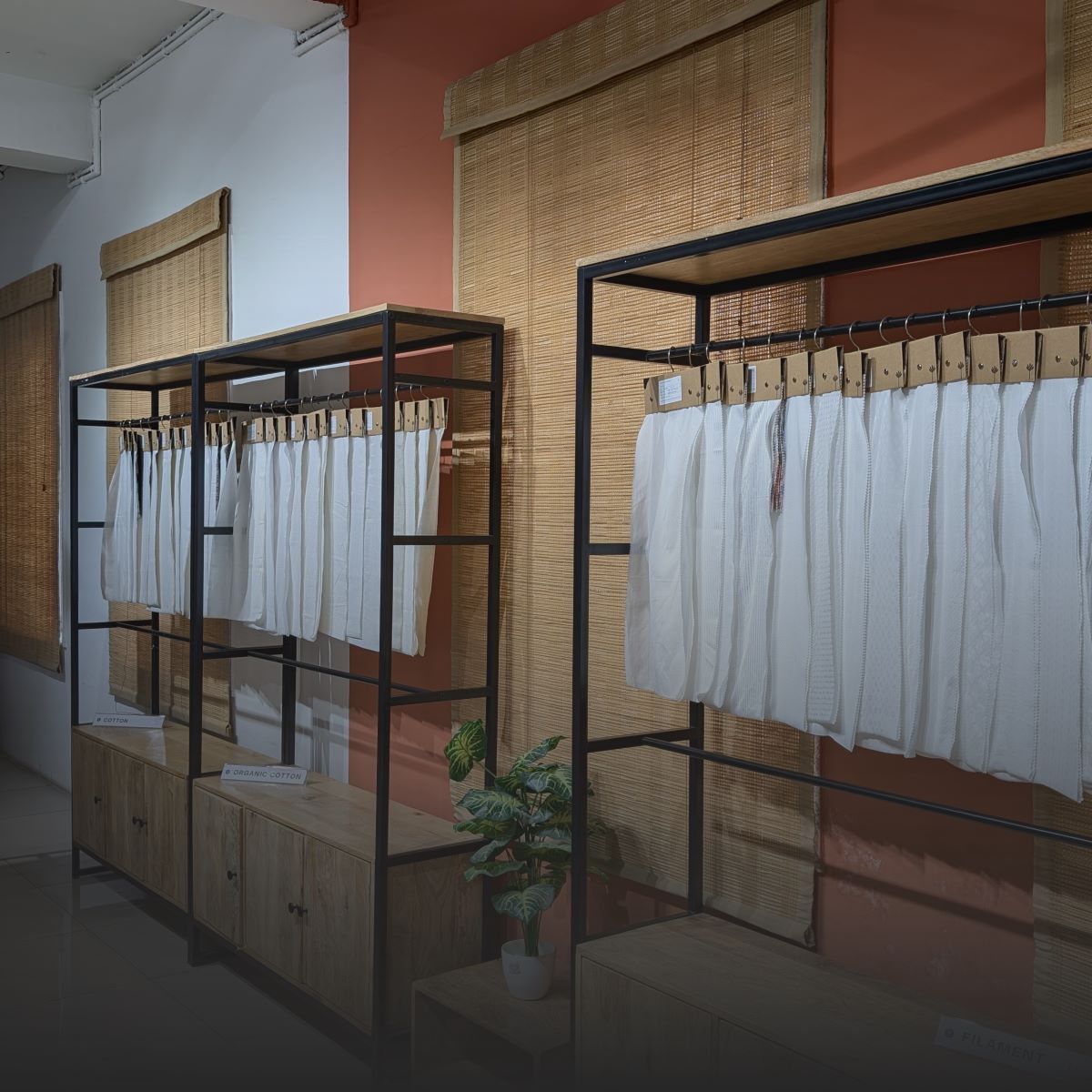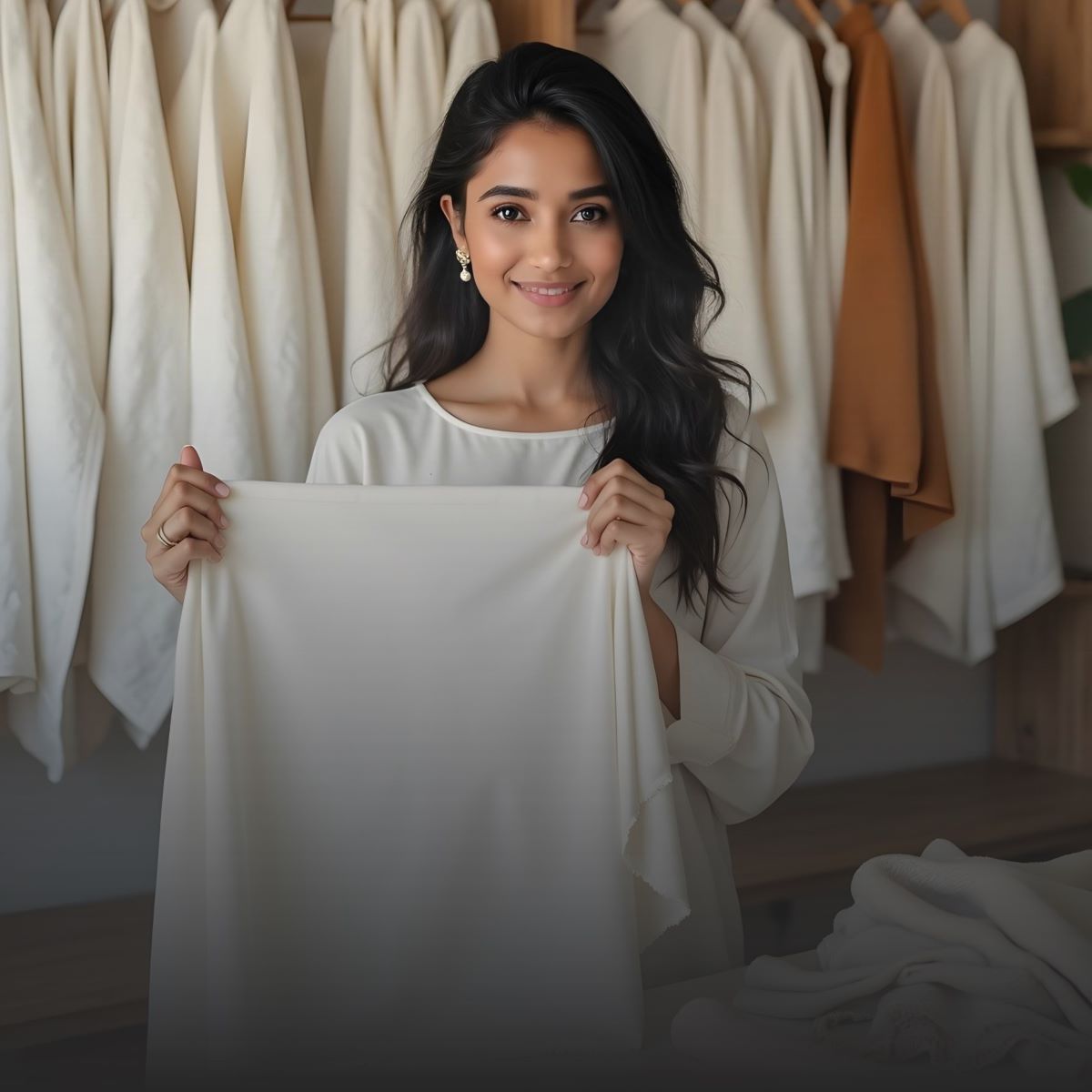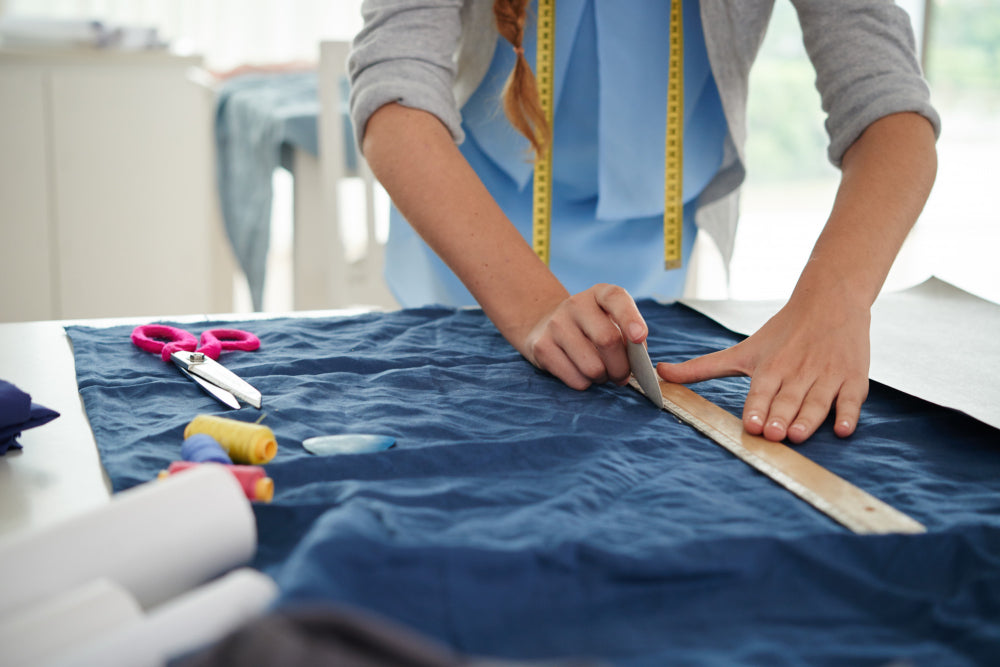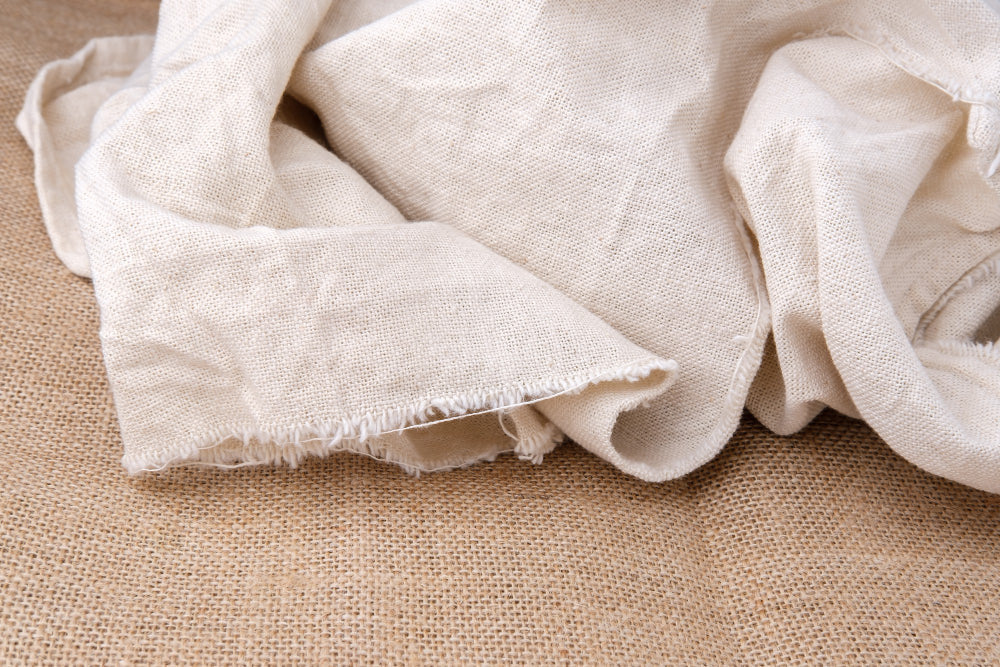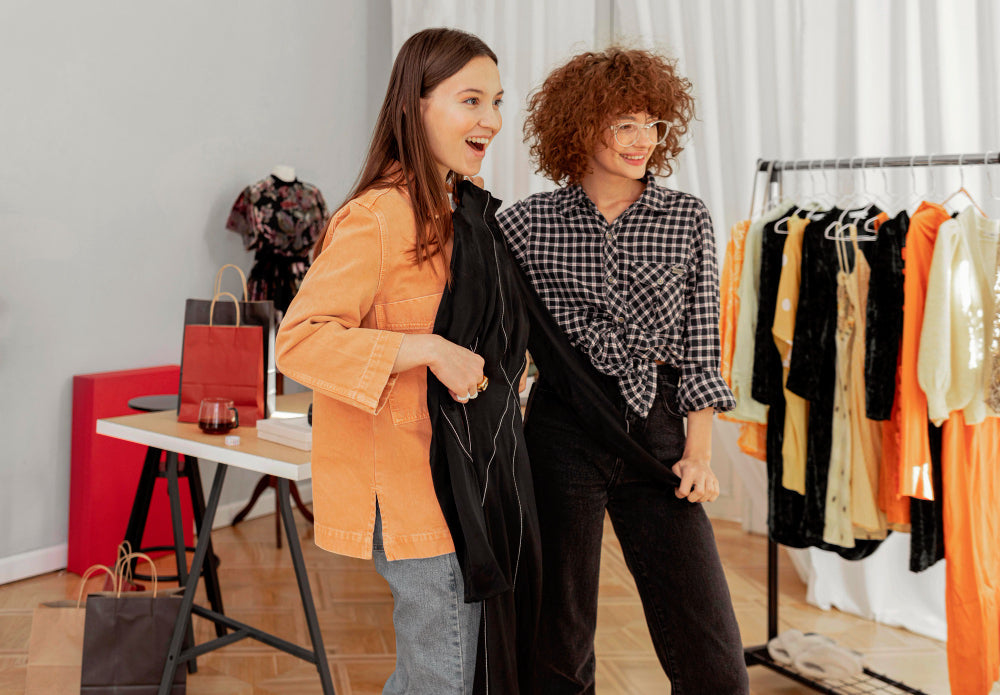In the modern fashion industry, fabric is more than a base material—it defines a brand's identity and storytelling. The colors, textures, and prints on fabric determine how a collection resonates with consumers.
Fabric dyeing and printing services help fashion brands create unique styles, achieve sustainability goals, and scale production easily with options like bold digital prints, naturally dyed textiles, and eco-certified blends.
However, finding the right partner is difficult. Many suppliers only accept bulk orders, limiting small designers and startups. Not all have global certifications, customization, or advanced technology integration.
This article explores leading providers of fabric dyeing and printing services worldwide, what to consider when choosing a supplier, and how technology is reshaping fabric customization for the future of fashion.
Top Global Providers of Fabric Dyeing & Printing Services

1. Fabriclore: Global Leader in Custom Fabric Printing & Dyeing Services
500+ global fashion brands, startups, and retailers trust Fabriclore as the best place to find wholesale fabrics and print custom designs on them. With over a decade of experience in fabric dyeing and printing, the company merges India's rich textile heritage with state-of-the-art technology and eco-compliant practices, delivering solutions that are both innovative and export-ready.
Why Fabriclore Stands Out
Extensive Fabric Library
From natural bases like cotton, linen, viscose, and silk blends to performance-driven textiles such as denim, knits, tweeds, Schiffli, and jacquard, Fabriclore provides a versatile foundation for every type of collection.
Comprehensive Printing & Dyeing Solutions
Fabriclore offers one of the broadest portfolios of printing and dyeing techniques, including:
- Digital Printing: Prints with perfect accuracy and an unlimited number of colors.
- Screen Printing: Printing in large quantities at a low cost with clear details.
- Rotary Printing: Best for long runs and big jobs.
- Block Printing: Handcrafted prints that are true to the culture.
- Natural Dyeing and Tie-Dye: Both are eco-friendly ways to color things that give them unique textures.
- 3D Rubber Screen Printing: Designs with raised surfaces that are in style right now.
- Resist Dyeing and Yarn Dyeing: These methods make colors that last a long time and are very bright.
- Embroidery Integration: Adding decoration directly to fabric.
MOQ Flexibility
Starting from swatch samples for prototyping to bulk runs of over 1000 meters for global production, Fabriclore accommodates both boutique designers and enterprise-scale labels.
Certifications & Compliance
Export-ready with GOTS, OEKO-TEX®, SEDEX, and ISO certifications, ensuring fabrics meet international standards for safety, sustainability, and ethical sourcing.
Sampling & Product Validation
You can check handfeel, print accuracy, shrinkage, and wash performance before you start full production by using swatches, strike-offs, and test yardage.
Global Shipping Network
Fabriclore makes sure that fashion companies all over the world can get the supplies they need quickly and safely by shipping to more than 50 countries, such as the USA, UK, UAE, Europe, and Australia.
End-to-End Apparel Manufacturing
Fabriclore offers custom garment manufacturing in addition to fabrics, making it a one-stop partner for brands looking for concept-to-collection solutions.
👉 Best suited for fashion brands seeking sustainability, flexibility, and scalability in a single trusted supplier.
2. Spoonflower (USA & Global)
Spoonflower is a print-on-demand platform favored by independent designers, small brands, and DIY creators.
- Specialty: Eco-friendly digital printing using water-based inks.
- MOQ: Orders from as little as 1 yard.
- Strength: Perfect for prototyping, testing designs, and small capsule collections.
- Weakness: Limited scalability for large wholesale orders.
3. SwatchOn (South Korea)
SwatchOn connects global designers with thousands of Korean mills.
- Fabric Offerings: Cotton, polyester, eco-blends, and performance fabrics.
- Services: Digital-first platform with swatch ordering and fast delivery.
- Strength: Trend-led, sustainable fabric options.
- Weakness: Better suited for mid-sized brands than mass retailers.
4. Fabcurate (India)
Fabcurate is a boutique Indian platform specializing in digital prints and designer fabrics.
- Fabrics: Organic cotton, linen, silk blends, and eco-certified bases.
- Services: Custom digital printing with small to medium MOQs.
- Best for: Boutique brands and limited-edition collections.
5. Offset Warehouse (UK)
Offset Warehouse is a UK-based platform specializing in ethical, fair-trade, and artisanal textiles.
- Fabrics: Organic cotton, hemp, bamboo, and handloom silks.
- Strength: Storytelling fabrics with artisanal roots.
- Weakness: Limited scalability for high-volume production.
6. SourceMyGarment (Canada)
A sustainability-first sourcing platform, SourceMyGarment, connects fashion brands with eco-friendly fabrics and comprehensive garment manufacturing services.
- Fabrics: Organic cotton, bamboo, recycled polyester blends.
- Compliance: Strong focus on North American and European standards.
- Best suited for: Startups and small brands seeking end-to-end eco-sourcing solutions.
7. iTokri (India)
iTokri is a niche marketplace dedicated to handloom and artisan fabrics.
- Fabrics: Khadi, naturally dyed cotton, and heritage weaves.
- Strength: Perfect for slow fashion brands.
- Weakness: Limited bulk production capability.
8. Printful & Printify (Global)
Global on-demand printing services are in high demand among fast-fashion and e-commerce brands.
- Services: Digital printing integrated with Shopify, Etsy, and other platforms.
- MOQ: As low as 1 product.
- Best for: Dropshipping and micro-collections.
- Weakness: Not suitable for large-scale wholesale fabric sourcing.
Comparison Table – Best Fabric Dyeing & Printing Providers
|
Provider |
Best For |
MOQ |
Techniques Offered |
Certifications |
Global Reach |
|
Fabriclore |
Startups + Global Brands |
1m+ |
Digital, Screen, Rotary, Block, Eco Dyes |
GOTS, OEKO-TEX |
50+ Countries |
|
Spoonflower |
Indie Designers |
1m |
Digital |
Eco Inks |
Global |
|
SwatchOn |
Trend-led sourcing |
Low |
Digital, Sublimation |
Various |
Global |
|
Fabcurate |
Boutique Designers |
Med |
Digital Prints, Eco Options |
Eco Options |
India/Global |
|
Offset WH |
Ethical artisan fabrics |
Small |
Block, Handloom, Natural Dyeing |
Fair Trade, GOTS |
UK/Global |
|
SourceMyGmt |
End-to-end eco sourcing |
Flex |
Dyeing, Printing, Manufacturing |
Eco Compliant |
Global |
|
iTokri |
Slow fashion & artisans |
Small |
Handloom, Natural Dyeing |
Handloom Verified |
India/Global |
|
Printful |
Dropshipping/fast fashion |
1pc |
Digital Printing |
Sustainable inks |
Global |
Why Fabric Dyeing and Printing Services Matter for Fashion Brands

1. Customization for Brand Identity
There are a lot of mass-produced clothes in fashion. Brands need unique fabrics that show off their DNA, like custom-printed, dyed, or embroidered fabrics. Unique prints, patterns, or color schemes make things easy to recognize and give them a sense of exclusivity.
2. Sustainability Through Eco-Friendly Dyes
Consumers and government officials today are becoming more and more aware of the damage that textiles do to the environment. Eco-friendly dyeing methods, like digital printing with little water and natural dyes, keep fabrics ready for the market while cutting down on waste and pollution.
3. Speed to Market
Fashion seasons are becoming shorter, driven by direct-to-consumer (D2C) retail and social media trends. Brands need partners who offer rapid sampling, strike-offs, and short production lead times, ensuring they stay competitive with fast drops.
4. Cost Efficiency in Scaling
The best providers cater to both small and large brands by letting test runs happen with low MOQs and bulk discounts for large-scale production. This freedom keeps them from overstocking and lowers their risks.
5. Compliance with Certifications
Eco-certifications such as GOTS, OEKO-TEX, REACH, SEDEX, and Fair Trade are now mandatory for global exports. Choosing suppliers with certifications ensures trust, compliance, and easier access to premium international markets.
What to Look for in a Fabric Dyeing & Printing Partner
Fashion brands should evaluate suppliers on the following criteria:
- Fabric Compatibility: A broad range of materials, including cotton, silk, viscose, polyester, knits, denim, and sustainable fibers.
- Printing Techniques: Digital printing, rotary, screen, sublimation, block, discharge, resist dyeing, and embroidery.
- Dyeing Solutions: Pigment, vat, reactive, acid, natural, or eco-friendly low-water processes.
- MOQ Flexibility: Suppliers who offer 1–10 meter samples for startups and scalable 1000+ meter orders for global brands.
- Sampling Support: Swatches, strike-offs, and test yardage before full-scale production.
- Certifications: GOTS, OEKO-TEX®, BCI, and ISO compliance for global exports.
- Technology Integration: Digital catalogs, AI design forecasting, blockchain traceability, and real-time tracking systems.
How Technology is Transforming Fabric Dyeing & Printing
- Digital Printing: It makes up to 90% less waste and uses up to 90% less water than screen printing.
- AI Forecasting: Predicts fabric and print trends to guide sourcing decisions.
- Blockchain Traceability: Tracks fabric batches from mill to retail, ensuring ethical transparency.
- Virtual Sampling: Cuts costs and reduces lead times by up to 40%.
- Automation in Dyeing: Precision dyeing machines ensure consistency in large orders.
Conclusion
Fabric dyeing and printing services are no longer just technical steps—they are strategic assets that define how a brand presents itself to the world. The unprecedented range of sourcing partners that fashion companies have access to today includes everything from traditional hand-made methods to high-tech digital solutions.
While platforms like Spoonflower and Offset Warehouse cater to niche, small-scale needs, Fabriclore emerges as the most versatile partner. With eco-certified fabrics, global certifications, low MOQs, advanced customization, and end-to-end garment manufacturing, it empowers both startups and international fashion brands to scale confidently.
👉 Ready to bring your designs to life? Explore Fabriclore.com today and bring your creative vision to life with sustainable, retail-ready collections.
FAQs
1. Which Provider Is Best For Sustainable Fabric Printing?
Fabriclore and Offset Warehouse are leaders in eco-certified fabrics and ethical practices.
2. Can Small Brands Order Custom Prints In Small Quantities?
Yes. Platforms such as Fabriclore, Spoonflower, and Fabcurate allow orders as small as 1 meter.
3. What Certifications Should I Look For In Printing Partners?
Global exports are sure to be legal with GOTS, OEKO-TEX®, SEDEX, REACH, and Fair Trade certifications.
4. Is Digital Printing More Sustainable Than Screen Printing?
Yes. Digital printing significantly reduces the use of water, energy, and chemicals compared to traditional techniques.
5. Who Provides Both Fabric And Garment Manufacturing?
Fabriclore and SourceMyGarment provide end-to-end solutions, from fabric sourcing to final garment manufacturing.
We also happen to be a magnet for suggestions, and would love to catch yours….throw us yours on hello@fabriclore.com
